
It’s time to start eating nutritious foods
Making changes to your diet is one of the easiest ways to manage and take control of your health. In addition to providing the energy you need, the foods you consume on a daily basis could also benefit your health in myriad of ways, from preventing cancer to protecting you against heart disease. Here are some of the world’s most nutritious foods that should be staples in your diet.
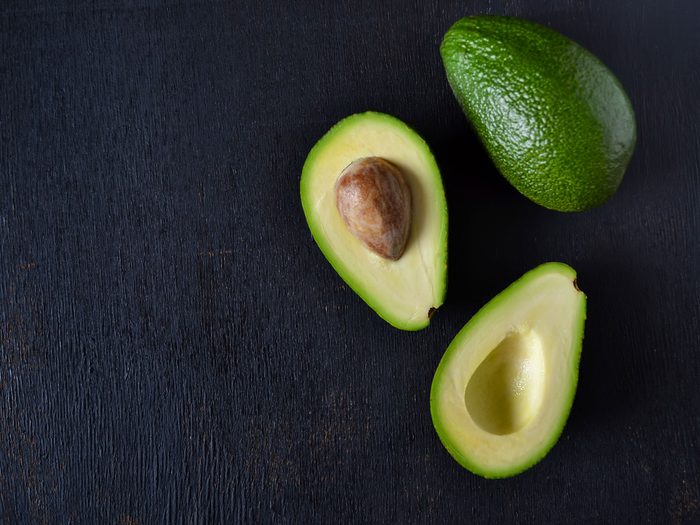
Avocados
Despite their fat, or actually because of it, nutritious foods like avocados can help lower your cholesterol naturally. Researchers find that replacing just five percent of your calories from saturated fat (think butter or cheese) with monounsaturated fat — the kind in avocados — could slash the risk of heart attack by more than a third. An added benefit: Avocados are also high in beta-sitosterol, a plant sterol that blocks the absorption of cholesterol from food, and the anticancer compound glutathione, a powerful antioxidant.
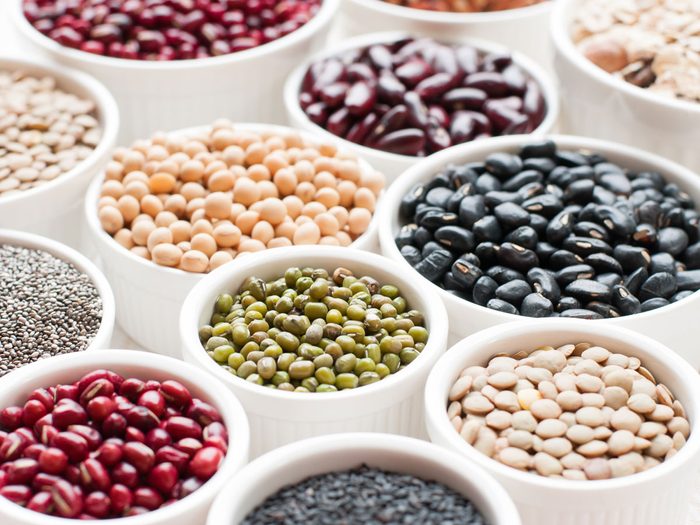
Beans
Beans are in fact good for your heart, thanks in large part to their soluble fibre, which soaks up cholesterol so the body can dispose of it before it can stick to artery walls. Studies find that diets high in soluble fibre can cut total cholesterol by 10 to 15 percent. The same soluble fibre, combined with beans’ protein, makes beans beneficial to blood sugar. Their magnesium helps relax arteries, giving blood more room to flow and lowering blood pressure. For a guest-pleasing side dish, try our Beans, Greens and Brown Butter Vinaigrette Salad.
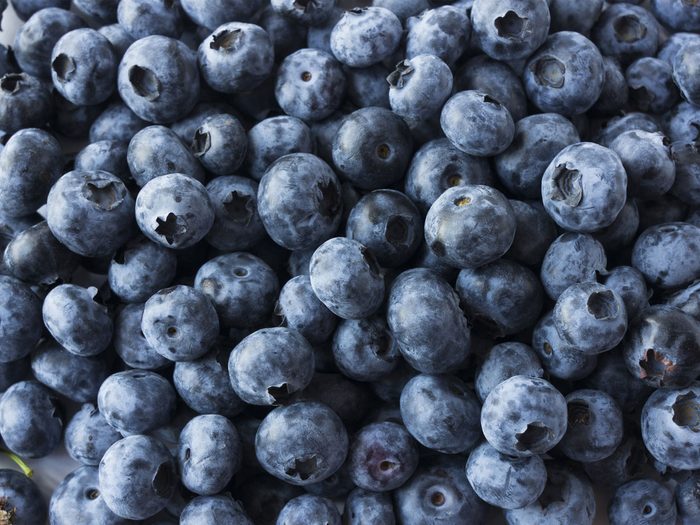
Blueberries
The antioxidant plant pigments that make blueberries blue — flavonoids called anthocyanins — guard against heart disease, cancer and age-related blindness and memory loss. Like their cranberry cousins, blueberries (and blueberry juice) are tops when it comes to preventing urinary tract infections, thanks to antioxidant epicatechins, which keep bacteria from sticking to bladder walls. (Don’t miss the beauty benefits of this beloved fruit.) Plus, the fibre in blueberries makes them powerful antidotes for constipation.
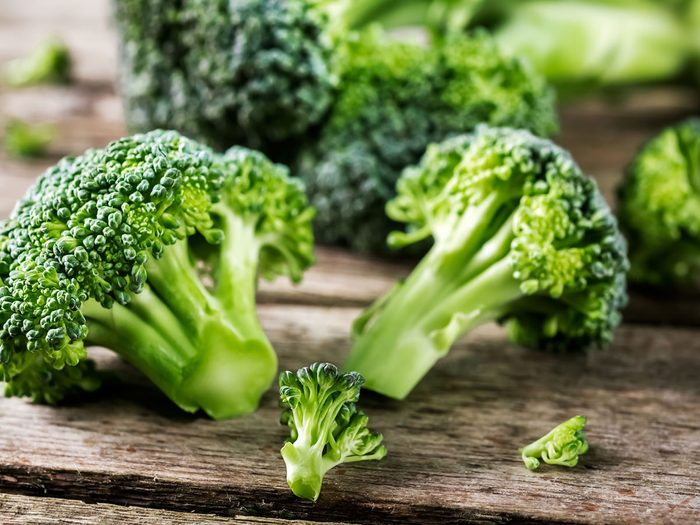
Broccoli
Consider broccoli your number one cancer fighter, thanks to its sulfur compounds, such as sulforaphane, which you can smell as broccoli cooks. These compounds signal our genes to boost production of enzymes that detoxify potentially cancer-causing compounds. Eat more broccoli, and you could slash your risk of everything from breast and lung cancer to stomach and colon cancer by as much as half. Sulforaphane has also been found to kill the bacteria that causes ulcers. Broccoli’s also a surprising nondairy source of calcium and potassium, making it good for your bones as well as your blood pressure. Its vitamin C and beta-carotene protect your eyes from cataracts and safeguard your brain cells from memory-robbing attacks by free radicals. Boost your intake with this Broccoli, Cauliflower and Leek Soup.
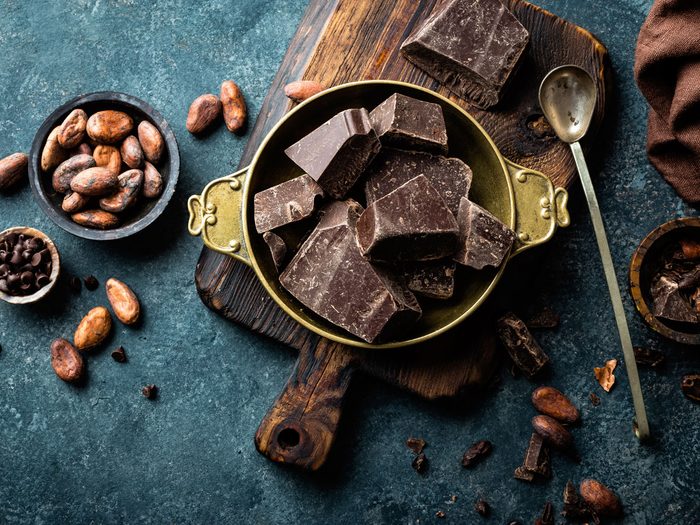
Dark Chocolate
Dark chocolate contains hefty amounts of disease-fighting flavonoids, antioxidants also found in red wine and many fruits and vegetables. In fact, it appears to have more flavonoids than any other food. Studies find its antioxidants can improve blood pressure, prevent blood clots, slow the oxidation of LDL cholesterol (making it less likely to stick to artery walls), and reduce inflammation. Some research suggests that eating 45 grams (1.5 ounces) a day can cut heart attack risk by 10 percent. Eating dark chocolate can also lower insulin resistance, the main problem behind diabetes.
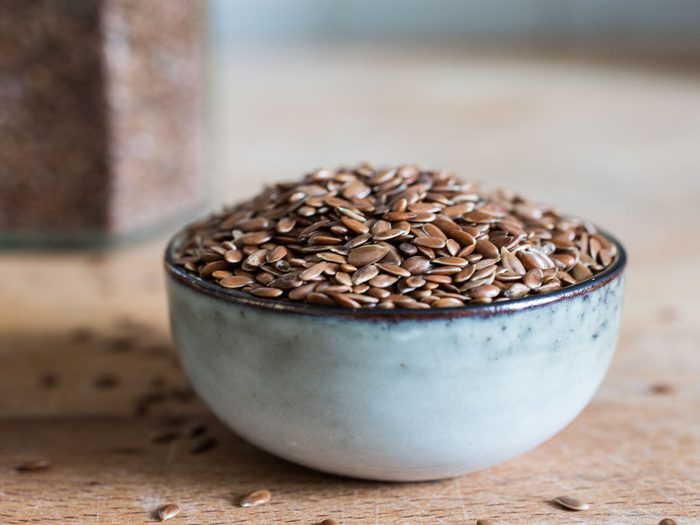
Flaxseed
A tablespoon of ground flaxseed sprinkled over cereal or yogurt or added to a smoothie provides an easy 2.3 grams of fibre, often more than what’s in the cereal itself! But flaxseed is most revered for its lignans. These act like estrogen in the body, blocking estrogen receptors on cells and contributing to reduced rates of certain hormone-related cancers, such as breast cancer. Flaxseed is also a fantastic source of alpha-linolenic acid (ALA), an essential fatty acid the body uses to make omega-3 fatty acids. ALA thins the blood and makes it less sticky, reducing the risk of heart attack and stroke. The little seeds also can lower cholesterol, thanks to their big stores of soluble fibre. Their anti-inflammatory power may also help keep various conditions, from acne to asthma, at bay.
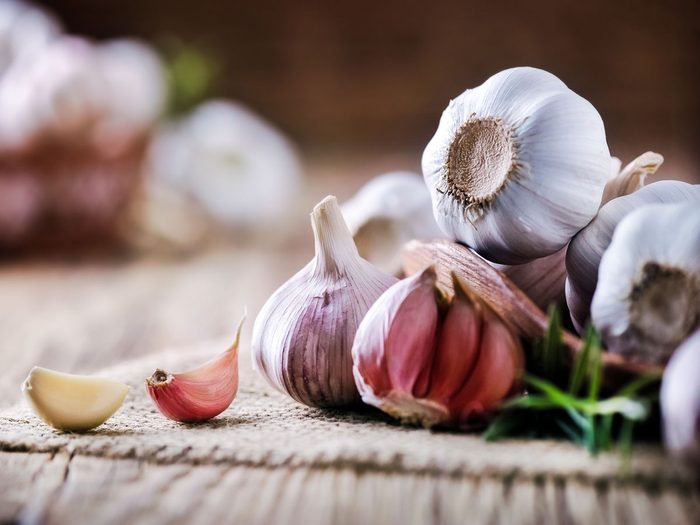
Garlic
More health benefits have been ascribed to garlic than to just about any other food — and some of them even hold true. Garlic has antibacterial, antifungal and antiviral properties; it even appears to banish some antibiotic-resistant bacteria, at least in test tubes. Most of its disease-fighting potential comes from its sulfur compounds, which act as antioxidants, providing many of its cardiovascular benefits. Garlic lowers cholesterol only modestly, but it also acts as a blood thinner, reducing the formation of blood clots and your risk of heart attack and stroke. Just six or more cloves a week can slash your risk of colorectal, stomach and prostate cancer in half, compared to eating one clove a week or less. The sulfur compounds flush out carcinogens before they can damage cell DNA, and they force cancer cells that do develop to self-destruct. Read up on more of the surprising benefits of garlic.
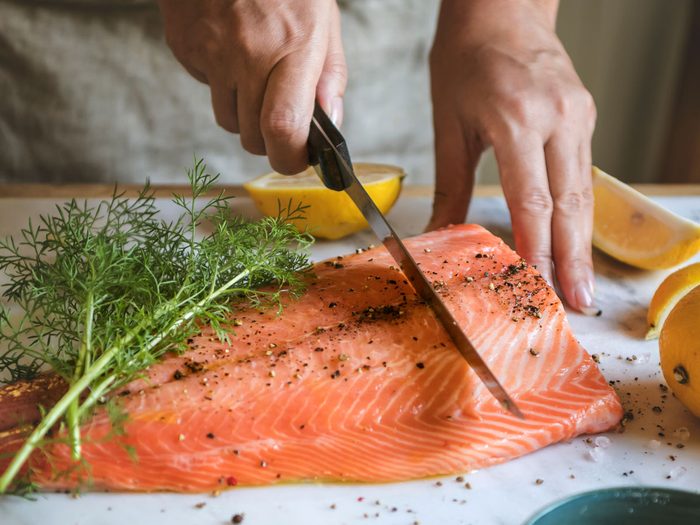
Salmon
The fat in salmon is like liquid gold when it comes to your blood vessels. Just two servings of salmon a week can reduce your risk of dying from cardiovascular disease by 17 percent and your risk of having a heart attack by 27 percent. And the benefits appear to go beyond the heart. A Swedish study that followed more than 6,000 men for 30 years found that those who ate moderate amounts of fatty fish slashed their risk of prostate cancer by a third. And researchers recently found that people who had the highest levels of omega-3 fatty acids in their blood were 53 percent less likely to report feeling mildly or moderately depressed.
Cooking for two? Try our Miso-Glazed Baked Salmon recipe.
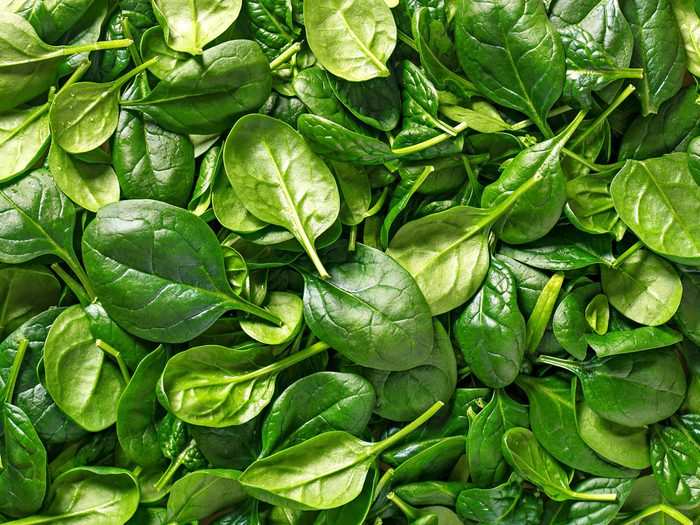
Spinach
In addition to protecting your eyes from age-related macular degeneration, thanks to its carotenoids, spinach has high concentrations of vitamin K, which can help maintain bone density and prevent fractures. The green stuff is also a powerful source of potassium and magnesium as well as folate, all of which can keep blood pressure low, reducing the risk of stroke. Folate also appears to slash the risk of lung cancer in former smokers. Here’s why you might want to go organic with your spinach.
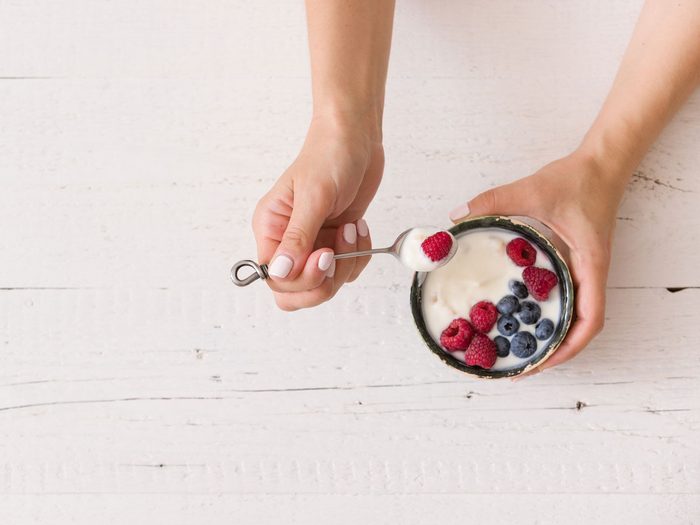
Yogurt
Yogurt is a great source of bone-building calcium, but its real strength lies in live beneficial bacteria, known as probiotics, that keep down the growth of harmful bacteria in your gut. Too many “bad” bacteria can lead to gastrointestinal and other health problems. Eating more yogurt could help with inflammatory bowel disease, ulcers, urinary tract infections and vaginal yeast infections, to name a few conditions. Getting plenty of “good” bacteria from yogurt is particularly important when you take antibiotics, which wipe out all bacteria, good and bad, in your gut. Probiotics also produce immunity-enhancing compounds and natural antibiotics that help reduce levels of nasty bacteria in the gut. Enjoy yogurt for breakfast? Here are 14 healthy toppings worth adding.
